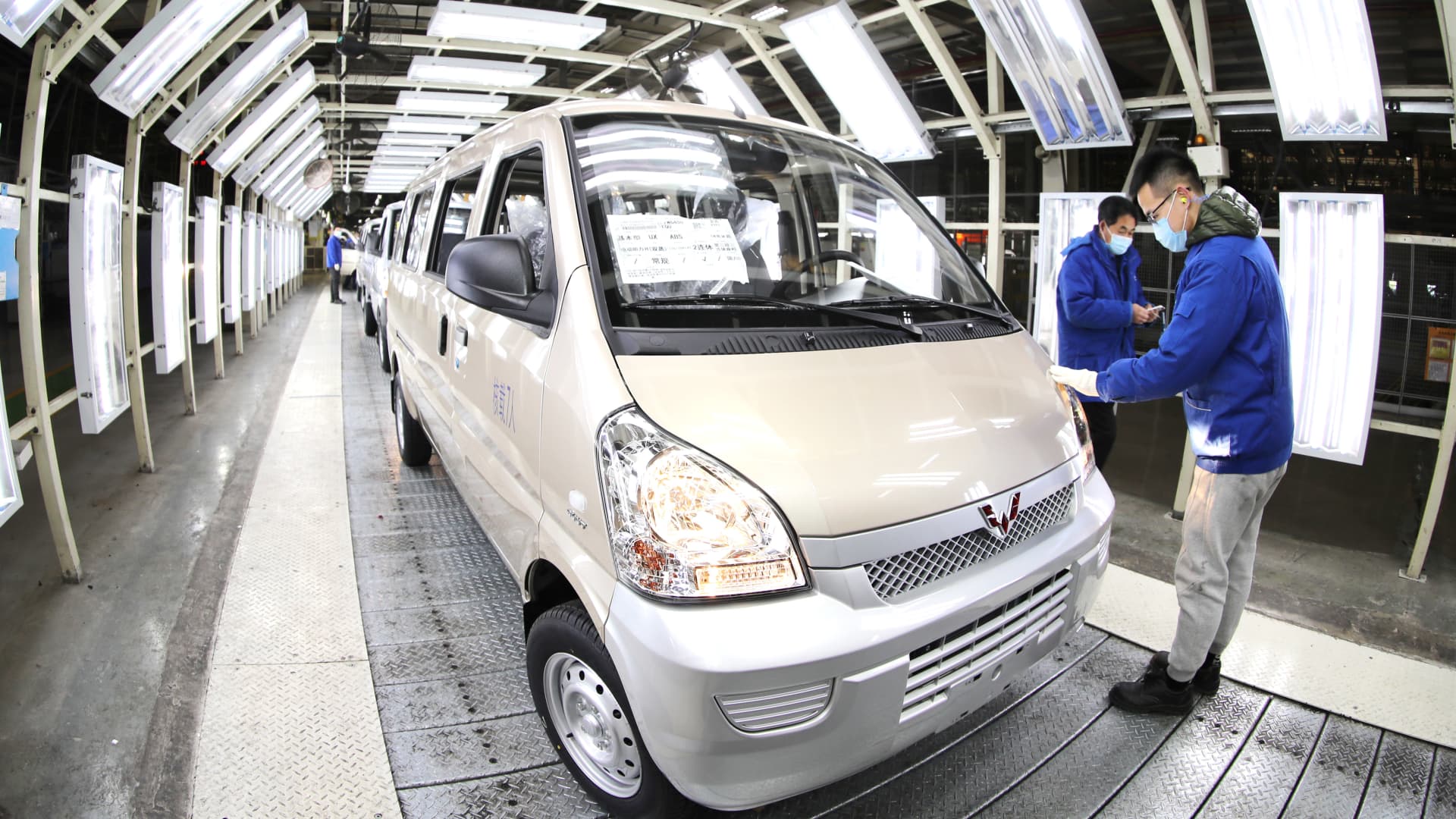What triggered General Motors’ collapse in China?
China has been the second largest market for General Motors for decades and the company sales had peaked to 4 million from 2010 to 2017. Just two and a half years ago the General Motors stock price was nearly double than what it is today. But now the investors in General Motors are fleeing the automaker company after holding its stocks for over 10 years. Warren Buffet led Berkshire Hathaway, Inc, an American multinational, hasshed all its 22 million shares in General Motors, a decision never taken before by the conglomerate with any other company it invested in.The question arises what resulted in staggering collapse of General Motors, its revenue, and its sales, in China.
General Motors made over $2 billion in profit in 2018; however, in 2023 that figure plummeted to $440 million. These numbers are even worse considering the fact it included inflation and the actual numbers can be close to $350 million. So, General Motors figures going down in China can be even worse in the coming year or two, which means if the carmaker is not going create some fail safe measures it might be finished pretty soon.
General Motors was second biggest automaker in China that has sold millions of cars there, but GM sales have continued to be free fall mode after Detroit based company had secured great figures in its first two decades of business in China. GM’s flagship models Buick Cadillac and Chevrolet have had given tremendous boost to company sales doing business of 2 billion per year till 2018. But last year the GM sales sharp decline of over 34% versus the Corona pandemic year of 2022. GM aims to reverse its losses in China in the current quarter of 2024 as it has started to focus on production and inventory.
Currently, GM has thousands of cars lying unsold in China. When it comes to electric vehicles most buyers in China do not prefer a GM made car.Chinese are aware of GM’s falling sales figures and there are rumors that GM may also shift base outside China akin to Mitsubishi and Jeep. Last eight months have triggered a sort of exodus for carmakers from China. General Motors market share topped 14% of entire world car market in 2017 and then fell to 8% and its Chinese sales volume dropped below those in United States first time since 2009. This spells as a huge loss for the GM as it sales in China currently is 50% lower than what it was at its peak in 2017.
GM leaders are aware of the reasons for struggling sales in China that largely attributes to an internal bias towards GM and preference towards domestic automakers’ cars, which are priced attractively as well. Last year, GM’s CFO Paul Jacobson stated thatdoing business in China has been challenging “as the industry navigates continued COVID-related impacts, regulatory changes for both EV and (internal combustion engine) vehicles and greater-than-expected competitive pricing. In the first half of 2022, COVID-19-related restrictions had hurt GM new-vehicle sales in China. GM reportedly had sold 2.3 million cars in 2022 in China.
GM is trying to up its game in electric vehicle (EV) segment in China.GM has started building a fresh lineup of EVs since November last year and introduced electric SUVs like CadillacLyriq, Optiq, Vistiq, and Buick. Buick is the inexpensive model of electric car by GM and two new EVs, Electra E5 crossover and E4 cube crossover, are recently added to the GM’s EV catalogue. But GM’s 95% sales is still dependent on its internal combustion engine cars and company is unsure of how its EVs can change the sales trend in China.
As per John Roth, Global Vice President, Customer Care and Aftersales, Cadillac, there is miniscule growth in sales figure in January this year and this trend can be promising in February. GM has high hopes from its ownership stake in joint venture SAIC-GM-Wuling, an automobile manufacturing partnership between SAIC Motor, General Motors, and Guangxi Auto, which has its headquartersbased in Liuzhou, Guangxi Zhuang Autonomous Region, in southwestern China. GM has 33% stake in SAIC-GM-Wuling partnership that is building ultra-cheap electric cars in China. SAIC-GM-Wuling has a smartly priced range of cars that starts from $5,000 and thanks to various government incentivesit makes $20 per vehicle. Currently, SAIC-GM-Wulinghas captured the Chinese market well as it has 50% of EV salesin China. But this is not a fulfilling achievement for GM because it can claim only one-third of SAIC-GM-Wuling sales figures in China.
Going ahead GM plans to sell luxury vehicles in China. But given the sustainability options and overly harsh policies for overseas companies in China GM has a winding road ahead. Moreover, it is hard to predict how acceptable GM-made luxury vehicles would be for the Chinese buyers when compared to other brands like Mercedes-Benz and BMW.













